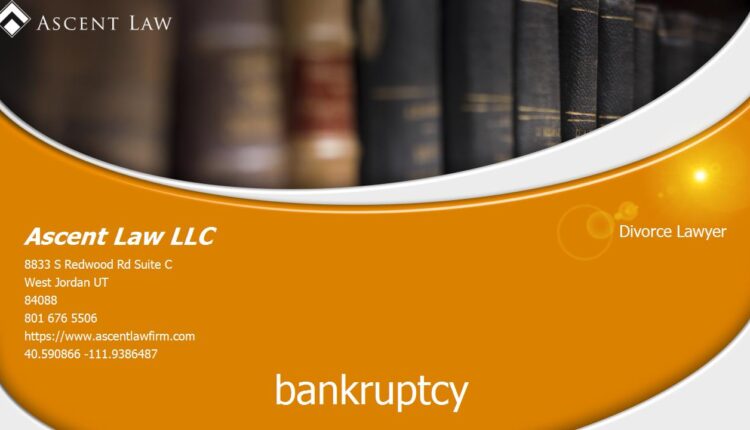Bankruptcy Law – What Is Bankruptcy?
Why is it called bankruptcy?
Originally, bankruptcy was an insolvency process for individuals, corporations, and businesses that could not afford to pay their debts. In many countries, people who could not pay their debts were sent to a “debtor’s prison.” However, in the United States, this type of prison was eliminated in 1833. Today, bankruptcy has become a legal process that helps people get back on their feet after they’ve fallen behind on payments.
A debtor can be an individual, a business, a general partner, or a corporation. If the debtor is a company, he or she may be a director or a shareholder who owns more than twenty percent of the voting shares. A person can file for bankruptcy protection if they have a significant amount of unsecured debt, such as credit card purchases, medical bills, and other bank loans.
There are two main types of bankruptcy: Chapter 7 and Chapter 13. Both of these procedures are designed to help people get a fresh start on their finances, but they have different advantages and disadvantages. A bankruptcy lawyer can help you determine which type is best for you.
When a debtor files for bankruptcy, the court will appoint a trustee to administer the proceedings. The primary duty of the trustee is to protect the creditors. The trustee will also look into the debtor’s assets, as well as any exemptions that are available to them. The trustee may sell the property of the debtor, lease it, or give it to the creditors. He or she will also meet with the debtor and creditors. These meetings are generally brief, and last no more than five minutes.
Before you can file for bankruptcy, you must fill out a form that lists your income and living expenses. You must also list all of your debts. You can keep certain personal property, such as tools of your trade, up to a certain dollar amount. Some insurance policies and motor vehicles can be kept, too. You can also keep your home up to a specific dollar amount, and you can continue making payments on your mortgage and other unsecured debts.
Disclaimer: This is not legal advice and is simply an answer to a question and that if legal advice is sought to contact a licensed attorney in the appropriate jurisdiction.
If you have any questions or in need a Bankruptcy Lawyer, we have the Best Attorneys in Utah. Please call this law firm for free consultation.
Ascent Law LLC
8833 S Redwood Road Suite C
West Jordan UT 84088
(801) 676-5506
https://www.ascentlawfirm.com
https://goo.gl/maps/abyMDqWEv97VbdhW6

When you need a Divorce Lawyer, contact this law firm:
8833 S. Redwood Road, Suite C
West Jordan, Utah
84088 United States
Telephone: (801) 676-5506
Recent Posts
Ascent Law LLC St. George Utah Office
Ascent Law LLC Ogden Utah Office
Directions from Orem Utah to Ascent Law LLC West Jordan Utah
Directions from Holladay Utah to Ascent Law LLC West Jordan Utah
Directions from Vivent Arena Salt Lake City Utah to Ascent Law LLC West Jordan Utah
Pleasant View, Utah
Jump to navigationJump to search
|
Pleasant View, Utah
|
|
|---|---|

Pleasant View City Hall, October 2011
|
|
| Motto:
“A treasure in Ben Lomond’s shadow.”
|
|

Location in Weber County and the state of Utah
|
|
| Coordinates: 41°19′18″N 111°59′54″WCoordinates: 41°19′18″N 111°59′54″W | |
| Country | United States |
| State | Utah |
| County | Weber |
| Settled | 1850 |
| Incorporated | August 27, 1945 |
| Founded by | John Mower |
| Area | |
| • Total | 6.98 sq mi (18.07 km2) |
| • Land | 6.98 sq mi (18.07 km2) |
| • Water | 0.00 sq mi (0.00 km2) |
| Elevation | 4,400 ft (1,341 m) |
| Population
(2010)
|
|
| • Total | 7,979 |
| • Estimate
(2019)[2]
|
10,839 |
| • Density | 1,553.53/sq mi (599.79/km2) |
| Time zone | UTC-7 (Mountain (MST)) |
| • Summer (DST) | UTC-6 (MDT) |
| ZIP codes |
84404, 84414
|
| Area code(s) | 385, 801 |
| FIPS code | 49-61150[3] |
| GNIS feature ID | 1444486[4] |
| Website | www |
Pleasant View is a city on the northern edge of Weber County, Utah, United States. The population was 7,979 at the 2010 census. It is part of the Ogden–Clearfield, Utah Metropolitan Statistical Area. It is a suburban community of Ogden.




Comments are closed.